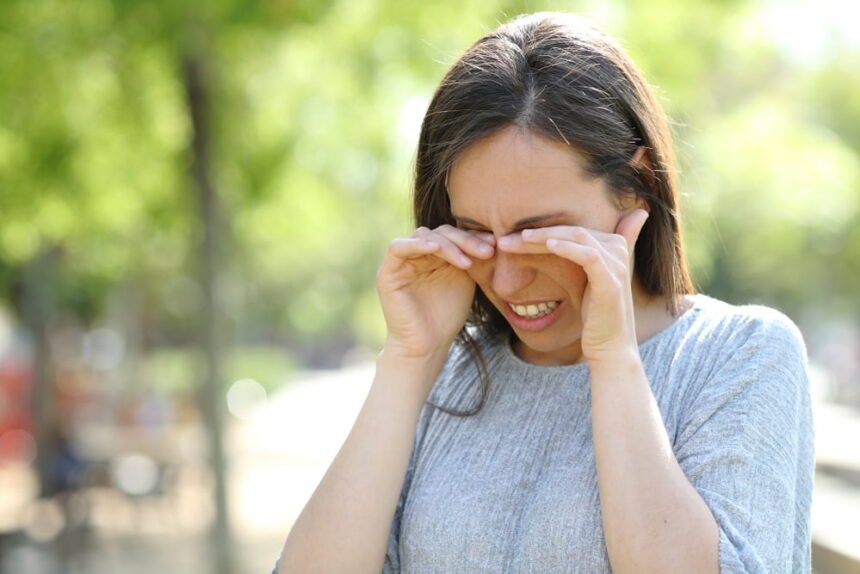We have all seen the effects of environmental pollution on people’s skin, and it would be fair to say that it is not a good thing. However, you might think that eyes are somehow immune from this damage (as they have eyelids to protect themselves), but this is not the case. There are several ways in which the environment can affect our sight.
How Environmental Factors Damage Your Vision
Your vision depends on many things, including your genetic makeup and the condition of your eyes. However, environmental factors like pollution can also have an impact on your eyesight.
Environmental pollutants can damage the surface of your eye and cause infections that can lead to serious conditions such as cataracts and glaucoma. Smoke from cigarettes is also harmful to your eyes and causes blurry vision by damaging blood vessels in the retina (the light-sensitive part of our eye).
Air Pollution
Air pollution is a significant factor that can lead to eye problems. It’s not uncommon for the air around us to be filled with dust, soot, and other particulate matter. This includes smoke from burning fossil fuels and wood and manufacturing processes such as cement production and steel forging.
The particles in the air are so small they can penetrate deep into our respiratory system and even into our eyes (eyelids are not always enough). The particles are also often toxic, a fact which makes them especially dangerous because they can cause inflammation or irritation of the eyes and sometimes even severe injury.
Air pollution is known to cause corneal abrasions due to contact with dust and sand, dry eyes because it dehydrates tear ducts, and cataracts due to UV light exposure caused by the reflection of particulates in smoggy skies.
Ophthalmologist Dr. Himanshu Garkoti says, “Chances of getting allergic inflammation remains high during early hours of the morning and in the evening because of dense smog, so it is advisable to wear specs while going for morning walk, especially for elderly people and children.”
Age-Related Macular Degeneration, A Condition That Has Been Linked To Air Pollution
AMD is the leading cause of irreversible blindness among those over 50 years old in high-income countries, and there are 200 million people worldwide with the condition.
It is a condition that affects the macula, a small area at the center of the retina. AMD is often called “wet” because it can lead to fluid leaking from blood vessels in the eye, which can damage the macula. The more severe form of AMD is referred to as “dry” because no new blood vessels grow, and leaky ones don’t cause vision loss (but they do make people more prone to retinal detachment).
Effect Of Global Warming On Human Eyes
Dry eyes are on the rise because of lowered humidity levels in our climate.
Dry eyes are a common problem that can be caused by many factors. They’re often a result of a lack of moisture, which can happen for several reasons, and Global warming is one of them. Warmer temperatures encourage evaporation, reducing surface water and drying up soil and vegetation.
These factors cause discomfort and pain when you blink or move your eyes around. Dry eye syndrome can also lead to an increase in vision problems such as blurry vision, night blindness, or halos around lights at night (also known as photophobia). According to the National Library Of Medicine, eye diseases in southern Spain have increased by 36.5% as a consequence of climate change.
Tips To Protect Your Eyes From Damage Caused By Environmental Factors
You can minimize your exposure to harmful pollutants.
When air quality is poor, limit time outdoors and avoid strenuous exercise. If you have to be outside, consider wearing eye glasses or sunglasses whenever possible. UV rays are especially dangerous for those who already have compromised eyesight from cataract surgery or other factors. They can cause more damage than ever before because the retina has been weakened by age-related changes like the yellowing of lens tissue (yellowing occurs naturally over time).
- Avoid the urge to rub irritated eyes. Rubbing your eyes should be avoided at all times because it can further irritate them, potentially leading to more serious issues like infections or even blindness if left untreated for too long. If you do need to rub something out of your eye, try using a clean tissue instead of putting your fingers in there this time.
- Use high-quality lubricating eye-drops regularly throughout the day (if needed). Eye drops will help reduce redness, swelling, and dryness so that you don’t have any more problems with them later on.
We hope this article has helped you understand the impact of environmental factors on your eyesight. There’s no way to avoid environmental pollution entirely, but you can take steps to minimize exposure and limit its adverse effects. If you feel something is wrong with your vision, see an eye doctor for an exam.
Takeaway
In conclusion, the environment has a direct impact on our eye health. Numerous factors can contribute to eye issues such as exposure to UV radiation, pollutants and chemicals, and insufficient nutrition. We have the power to protect our eyes by taking preventative measures such as wearing sunglasses, avoiding smoking, and eating healthy foods. Taking care of our eyes is essential to maintain good vision and keep us seeing clearly for years to come.









